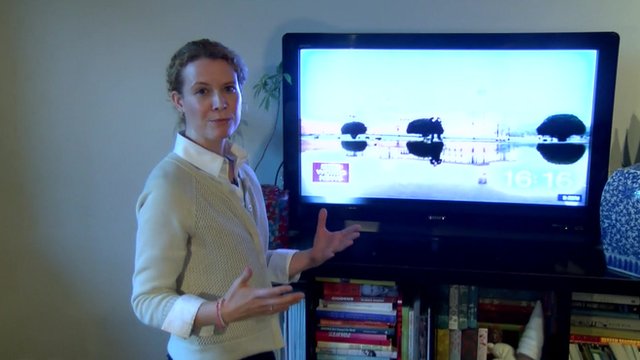China has sought to limit access to foreign TV and websites which broadcast and publish pictures and information which the government wants to restrict access to. The BBC‘s reporter CeliaHatton reports from Beijingshowing how the TV black outs work in practice – where the BBC’s global TV news channel BBC World is frequently blacked out. The news was realting to the public unrest in Hong Kong.
Many big hotels and establishments have access to BBC and CNN but if the news is against the Government the particular news on the television screen will simply black out. The central command in the communist regime has a control over these foreign channels.
Censorship in China is largely seen as a measure to maintain the rule of the Communist Party of China. Censorship helps prevent unapproved reformist, separatist, “counter-revolutionary“, or religious ideas, peaceful or otherwise, from organizing themselves and spreading. Additionally, censorship prevents Chinese citizens from discovering or learning more about past and current failures of the Communist Party that could create or inflame anti-government sentiment. Measures such as the blocking of foreign governments’ websites may also be intended to prevent citizens from learning about alternative systems of governance and demanding similar systems.[citation needed] The PRC also bans materials showing history that conflicts with the official Chinese version, with particular sensitivity to depictions of Japan and Tibet in history.
In the lead-up to the Beijing Olympics, the government allegedly issued guidelines to the local media for reporting during the Games: political issues not directly related to the games were to be downplayed: topics such as Pro-Tibetan independence and East Turkestan movements and food safety issues such as “cancer-causing mineral water” were not to be reported on.[8] As the 2008 Chinese milk scandal broke in September 2008, some western media evoked suspicions that China’s desire for a perfect games may have been a factor contributing towards the delayed recall of contaminated infant formula,[9] which has given more than 50,000 babies kidney stones and killed at least four infants[10] although the Central government denied this.[11]
On 13 February 2009, Li Dongdong, a deputy chief of the General Administration of Press and Publication, announced the introduction of a series of rules and regulations to strengthen oversight and administration of news professionals and reporting activities. The regulations would include a “full database of people who engage in unhealthy professional conduct” who would be excluded from engaging in news reporting and editing work. Although the controls were ostensibly to “resolutely halt fake news”, it was criticized by Li Datong, editor at the China Youth Daily who was dismissed for criticizing state censorship. Li Datong said “There really is a problem with fake reporting and reporters, but there are already plenty of ways to deal with that.” Reuters said that although Communist Party’s Propaganda Department micro-manages what newspapers and other media do and do not report, the government remains concerned about unrest amid the economic slowdown and the 20th anniversary of the pro-democracy protests in 1989.[12]
In January 2011, Boxun revealed that Politburo member responsible for the Propaganda Department, Li Changchun, issued instructions for the Chinese media to downplay social tensions on issues such as land prices, political reform and major disasters or incidents, and to ensure reporting does not show the Communist party negatively. The Party warned that media must “ensure that the party and government do not become the targets or focus of criticism”, and any mention of political reforms must reflect the government in a favourable light.[7]








